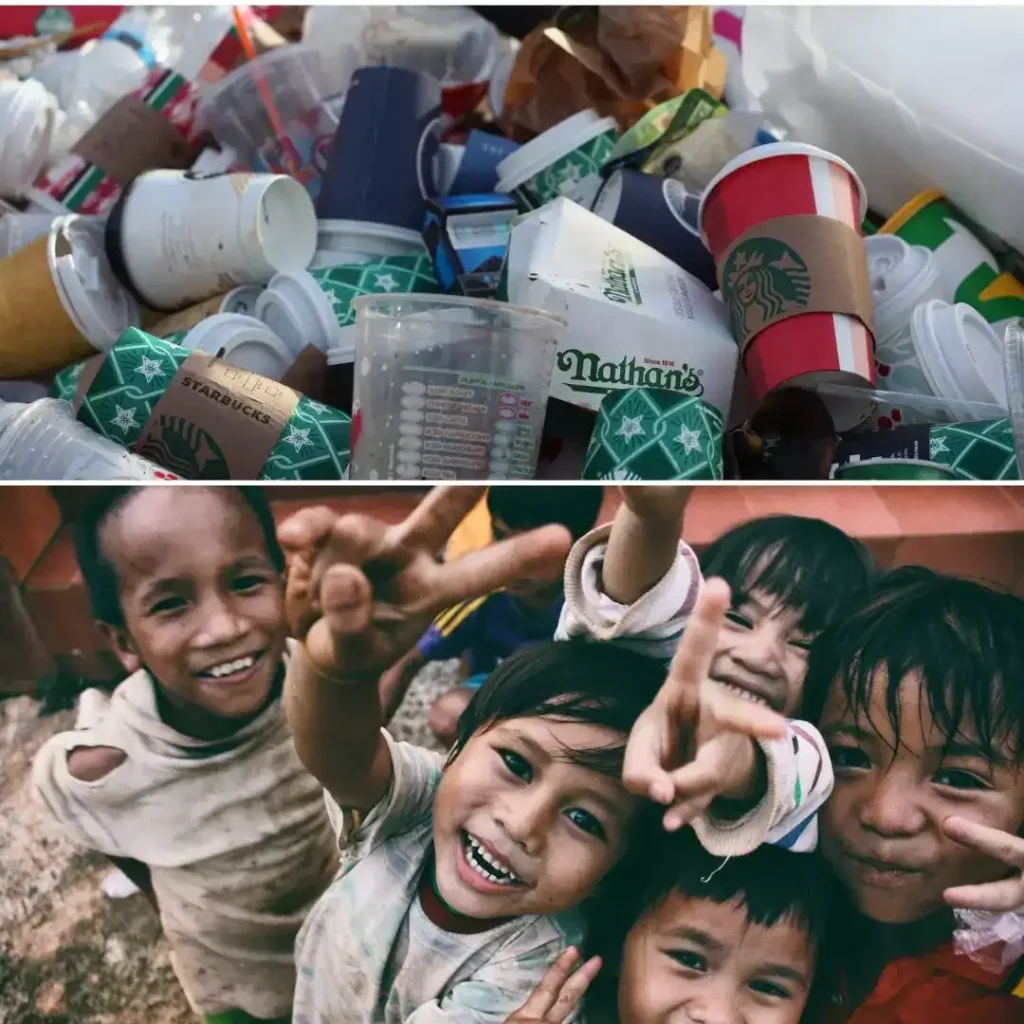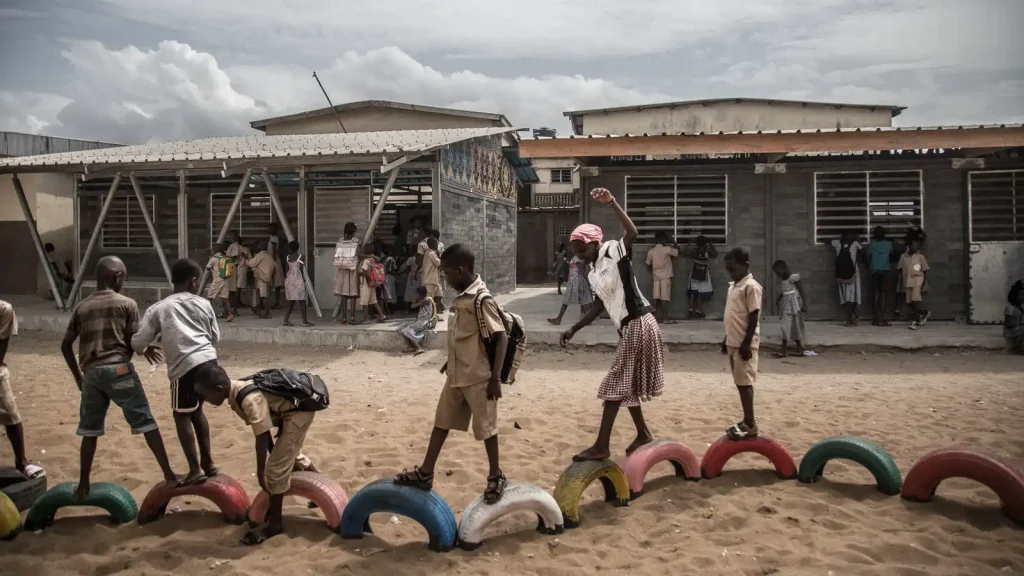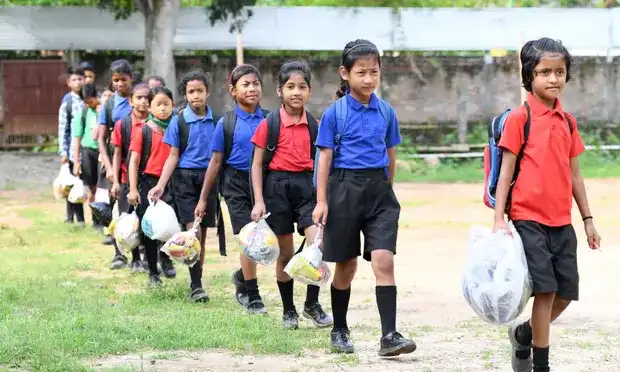In a small corner of Assam, India, lies a school with a remarkable initiative that’s turning heads worldwide. This school, nestled amidst lush greenery and rolling hills, has found a unique way to tackle two pressing issues: education and plastic pollution. Imagine paying your school fees not with coins or notes but with something as common as a plastic bottle! Yes, you heard it right. At this extraordinary school, plastic is the currency that opens the doors to education.

But how did this idea come about, and how does it work? Let’s explore the fascinating world of this innovative school.
A Green Idea Blooms
The story begins with a simple yet powerful idea. Instead of conventional school fees, why not accept plastic waste as payment? This brainwave not only addresses the financial barriers to education but also tackles the growing menace of plastic pollution. Plastic bottles, bags, and wrappers that would otherwise clutter the environment find a new purpose here – funding education.

From Trash to Treasure
Students bring their collected plastic waste to school, where it undergoes a magical transformation. The school has set up recycling and upcycling units where the plastic is sorted, cleaned, and processed. Some of it is recycled into useful items like furniture or stationery, while the rest is sent for proper disposal. Through this hands-on process, students learn the importance of environmental conservation and responsible waste management.

Learning Beyond the Classroom
But the impact of this initiative goes far beyond the school gates. By involving students in the entire process – from collecting plastic to transforming it – the school instils values of sustainability and environmental stewardship. These lessons extend into their homes and communities, where students become ambassadors for eco-friendly practices. It’s not just about acquiring knowledge from textbooks; it’s about applying that knowledge to create positive change in the world around them.

A Beacon of Hope
The ripple effect of this pioneering initiative is spreading far and wide. Schools in other parts of India and beyond are taking inspiration and implementing similar programs. What started as a local solution to a local problem has become a beacon of hope for global efforts to combat plastic pollution and promote education for all.

Joining Hands for a Greener Future
As we look ahead, it’s clear that the journey towards a greener, more sustainable future requires collective action. Each one of us has a role to play – whether it’s reducing our plastic consumption, recycling diligently, or supporting innovative initiatives like the one in Assam. Together, we can turn the tide on plastic pollution and ensure every child has access to quality education, no matter their circumstances.

Conclusion
In the heart of Assam, a school is rewriting the script of education and environmental conservation. Accepting plastic waste as fees not only opens its doors to students but also opens minds to the power of innovation and collaboration. As we applaud this remarkable initiative, let’s also take it as a call to action. Let’s join hands and work towards a future where education flourishes and our planet thrives.

I included a mix of information from the links provided, focusing on the innovative idea of using plastic as school fees, its impact on education and the environment, and the broader implications and inspirations it has generated. Let me know if there’s anything specific you’d like to add or change!
For more interesting articles, please visit www.kidzherald.com





